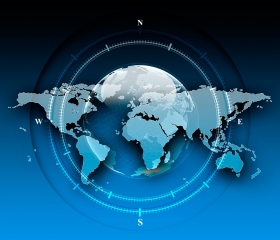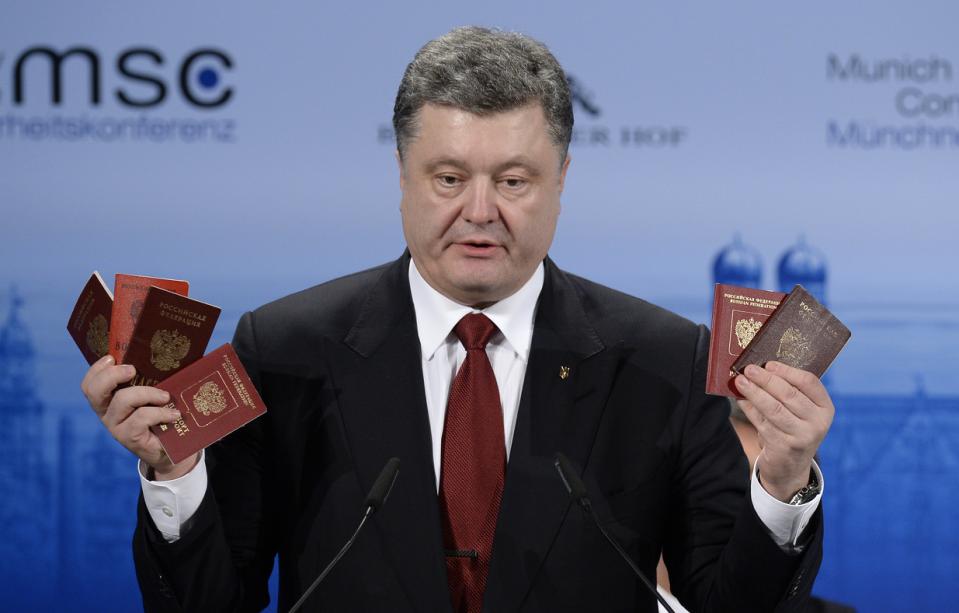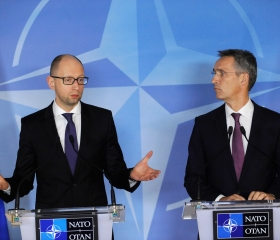The first impression from the Munich conference is that relations between Russia and the West are beginning to resemble a game of chicken. It is as if two airplanes are rushing towards each other head-on, and both crews refuse to deviate from their planned route. The only way for one side to win is for his opponent to lose. It is a virtually impossible task to make concessions or for both opponents to turn away at once. After all, both crews fundamentally distrust each other. Let’s say we turn away. What if they don’t? As a result, both sides are pursuing a full-frontal attack with enviable persistence. Fight to the death, but never turn away.
The first impression from the Munich conference is that relations between Russia and the West are beginning to resemble a game of chicken. It is as if two airplanes are rushing towards each other head-on, and both crews refuse to deviate from their planned route. The only way for one side to win is for his opponent to lose. It is a virtually impossible task to make concessions or for both opponents to turn away at once. After all, both crews fundamentally distrust each other. Let’s say we turn away. What if they don’t? As a result, both sides are pursuing a full-frontal attack with enviable persistence. Fight to the death, but never turn away.
Civil war-torn Ukraine is the focal point of this game. The Kiev authorities and the rebels from Donetsk and Lugansk are at the forefront of the attack. The confrontation between them has gone so far as to become a self-sufficient system. Almost no one is interested in a change of course. It would be a major risk for all sides in the short-term to put an end to the war. However, it would be fatal to continue the war in the long-term. Paradoxically, considerations of the short-term gains are outweighing fears of a long-term plan. The behavior of all the parties involved is reminiscent of a patient who would prefer to die from a deadly disease than endure an injection.
For the Ukrainian leadership, to cease military operations would mean serious concessions and, more importantly, it would mean bringing tens of thousands of soldiers and combatants home. These people are a serious force that will be extremely difficult to control. It will become harder to attribute the economic decline and sharp deterioration in quality of life to the war, and it will be difficult to consolidate society in the face of an external threat. Another revolution in a country flooded with weapons is a very real outcome. The higher Ukraine’s political losses due to withdrawal from the war, the greater are the odds of such a revolution.
For the rebels, the war is a means of political survival. It will be much more difficult for them to establish a peaceful life in the Donetsk and Lugansk regions than it will be for the Ukrainian authorities in the rest of the country. The economies of the regions have been largely destroyed by the war, and the working-age population has either fled or taken up arms. The regions cannot expect to recover on their own even in the far future, and Ukraine is unlikely to take that job upon itself. The political regime will inevitably be harsher and therefore less appealing. It is clear that the war will drive the region into an even deeper abyss. However, if the war does end, the very principle of how the breakaway republics function will have to be fundamentally restructured. That is also a huge risk for the leaders of those republics.
Even if they do manage to reach an agreement, both parties will inevitably suspect each other of deception. In the eyes of the rebels, the only purpose of peaceful respites is for the Ukrainian armed forces to regroup and resume the war. This risk is perceived in a similar way in Kiev, which thinks respites give the rebels time to create a full-fledged army, which will pose major complications for official Kiev. This is what happened with the Minsk agreements.
Both the Ukrainian authorities and the rebels are looking with hope to their patrons and expecting full support, sometimes even provoking them into providing that support. Give us weapons! Give us money! Give us, give us, give us…
The difference is that the big players in this situation (Russia, the European Union, and the United States) can afford the luxury of a long game. Yes, the Russian economy has been compromised by the economic crisis. But the remaining margin of safety is very concretely expressed in the Russian leadership’s political will for a long struggle. Yes, the EU is suffering from its loss of the Russian market, as well as its loss of the Ukrainian market, which has been destroyed by the war. But the EU will survive without them, which means it can also tolerate a long struggle. Yes, the U.S. would prefer to have a calm rear in Eastern Europe and Russia – it has enough problems in other parts of the world. But it has more than enough resources to provide at least minimal support for Ukraine and to contain Russia.
It would appear that such an alignment makes a smoldering war inevitable, if it were not for one thing. If the war continues to escalate and the parties continue to adopt a tit for tat approach, they could lose control over the situation. With each swing of the pendulum of war, its trajectory will grow ever wider. Political leaders will become hostages to their own military and bureaucratic machines, and even to social forces, which are already aligned towards conflict. It will be impossible to stop them. Imagine the political losses that any leader would incur if he were to make concessions even at this point. He would be tarred and feathered by public opinion, all after being raked over the coals by propaganda. And of course, he would not even be supported by his own generals and bureaucrats.
Here is the bottom line. The longer the war lasts, the more it will be sucked into its own vortex and the fewer opportunities particular leaders will have to influence the situation. Until finally, one of the parties will be so depleted that it has to raise the white flag. Meanwhile, everyone will think that ‘they’ – those on the other side of the front – are about to fall apart and surrender, so in the meantime ‘we’ need to hold on until the bitter end. That ‘bitter end’ will not come for years. In the end, everyone loses. The saddest part is that not a single one of Ukraine’s problems will be solved.
It is time to break the self-sustaining system of conflict. The formula to find a solution is negotiable. Whether it be the ‘Chechen scenario,’ the ‘Transnistrian scenario,’ or some other scenario is of tactical importance. It is strategically necessary to launch the process of de-escalation and maintain control over the situation while there is still the political will to solve anything and while a dialogue is possible in at least some format.
It seems that only those who spend every day under bombing and gunfire from both sides have a vested interest in peace. But sooner or later, the fate of all passengers on the airplanes rushing headlong at each other will be at stake. It is time for the pilots to take that into consideration. Shuttle diplomacy exercised by European leaders gives us a phantom of a chance that we must not overlook.
First published on Russia Direct







